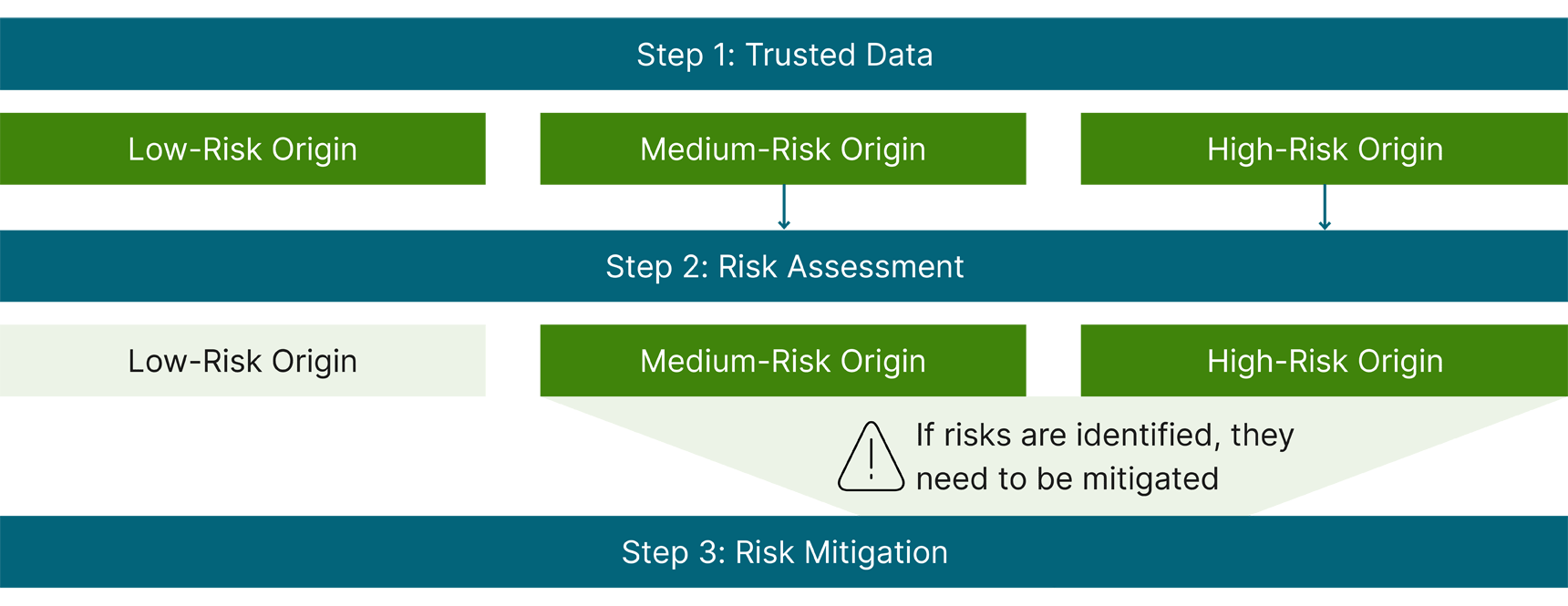 Search
Search


By Michèle Koper
EU imports between 1990-2008 accounted for 36% of global crop products linked to deforestation1. To mitigate those impacts, the European Commission introduced the EU Deforestation Regulation (EUDR) as an important part of the EU Green Deal.
The EU Deforestation Regulation2 came into force on 29 June 2023, and aims to guarantee that selected products EU citizens consume do not contribute to deforestation or forest degradation. It covers seven main commodities and products that originate from or are a part of these commodities. This blog provides an overview of the contents of the regulation and preparatory steps for compliance for companies established in the EU.
What is in Scope?

The robustness of the risk assessment depends on the sourcing country and associated sustainability risk profile (low-, standard-, or high-risk). For products from standard-risk and high-risk countries, companies need to conduct a risk assessment, assessing the origin against 14 risk criteria, including environmental and human rights. Any identified risk needs to be mitigated before goods can be imported to the EU.

The EUDR covers both the commercial activities of operators (importing the goods on the EU market) and traders (commercializing, e.g., processing, distributing, and selling already imported goods).
Actors further down the supply chain may refer to due diligence performed earlier in the supply chain, though they may still retain legal responsibility in the event of a breach of the regulation.
In case of non-compliance, companies may face penalties and sanctions such as suspension or refusal of import or fines of up to 4% of company turnover within the EU. Additionally, scrutiny by private parties may also occur. The EUDR allows for the possibility for private parties, e.g., NGOs, to submit substantiated concerns.
The EUDR poses companies with global agricultural value chains active on the EU market with new challenges to increase supply chain traceability and risk management. It will not only be relevant for EU companies, but non-EU companies may also be asked by their customers to provide the necessary information. While the new data requirements call for significant additional efforts in supply chain management, the new traceability requirements could boost companies’ progress toward resilient and nature-positive value chains and unlock synergies between Scope 3 abatement and nature-risk and opportunities assessments.
Guidehouse can support your company in identifying your exposure to EUDR compliance, mapping your supply chain, setting up a data collection system, and a supplier engagement mechanism to obtain the needed information. As a next step, we can help you prepare for the risk assessment for medium- and high-risk countries and support you in developing a risk mitigation strategy. We work to leverage the synergies present between your ongoing data collection efforts for greenhouse gas accounting, forest, land, and agriculture targets, abatement roadmaps, Science Based Targets Network, and risk assessments in preparation for the Corporate Sustainability Reporting Directive or Taskforce on Nature-related Financial Disclosures.
Guidehouse is a global organization providing advisory, technology, and managed services to the commercial and public sectors. Purpose-built to serve the national security, financial services, healthcare, energy, and infrastructure industries, we collaborate with leaders to outwit complexity and achieve transformational changes that meaningfully shape the future.